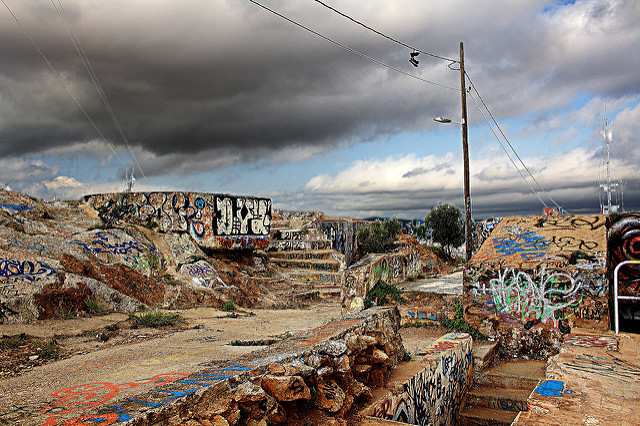With the hearing of memory, exchange of sounds between Weimar and Barcelona
With the hearing of memory, exchange of sounds between Weimar and Barcelona
The Music Technology Research Group is taking part in a project that deals with the exploration of the acoustics of some places related to dictatorships in Germany and Spain, together with Phonos and the Bauhaus-Universitaät of Weimar.
The contemporary history of Germany and Spain has a common denominator: a turbulent past represented by national socialism and the Franco regime, respectively. Germany began to leave behind its period of the “pact of silence” when in the 1990 it began to speak of “historical memory” which culminated in 2005 with the inauguration in Berlin of the Monument to the Holocaust. Similarly, in Spain the Historical Memory Law was passed in 2007.

During the next few weeks, Pompeu Fabra University will be participating along with Bauhaus-Universität of Weimar and Phonos (Germany) in the project: ”With the hearing of memory-Towards the influence of acoustic phenomena and spatial perception related to the treatment of dictatorships in Germany and Spain”.
This project will consist of an acoustic exploration of places related to dictatorial periods in Germany and Spain through an exchange between Weimar Universität and Pompeu Fabra University. The aim is to present six sound installations developed in architectonically relevant places during Nazism in Weimar and Francoism in Barcelona..
For UPF, the team participating in the project is made up of four students on the master’s degree in Sound and Music Computing (SMC) and two students from the bachelor’s degree in Audiovisual Systems Engineering, with the support of researchers from the Music Technology Group (MTG) and of the Cognitive Media Technologies Research Group (CMTRG), of the Department of Information and Communication Technologies (DTIC) at UPF. The students and researchers from Pompeu Fabra University will be staying in Weimar during June 2018.
The main goal of this collaboration is to explore meaningful sites of these periods, use their spaces to extract “sounds” from the past that commemorate their history. The German group includes several locations from the Nazi period in Weimar as “sound objects”. The Barcelona group, according to the MUHBA, has chosen as “sound objects” Refuge 307, Sant Felip Neri square, El Molino and the Parallel, the bombing of the Colosseum and the shelters of Turó de la Rovira.
The Group of students from Weimar are to present the sound installations they are developing in Barcelona with the collaboration of professors of the Department of Architecture and electro-acoustic music students of Bauhaus-Universität of Weimar. The students and teachers from Weimar will be staying in Barcelona for a week from 19 March.
On Thursday, 22 March at 7:30pm, Yvonne Graefe (Bauhaus-Universität of Weimar) and Teresa Carrasco (UPF alumni and Bauhaus-Universität of Weimar), with the students of the Electronic Music Studio Weimar will give the presentation of their projects in the Aranyó hall on the Poblenou campus (Roc Boronat, 138. Barcelona). Entrance is free.
